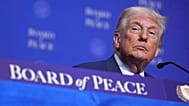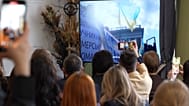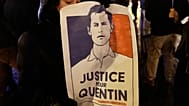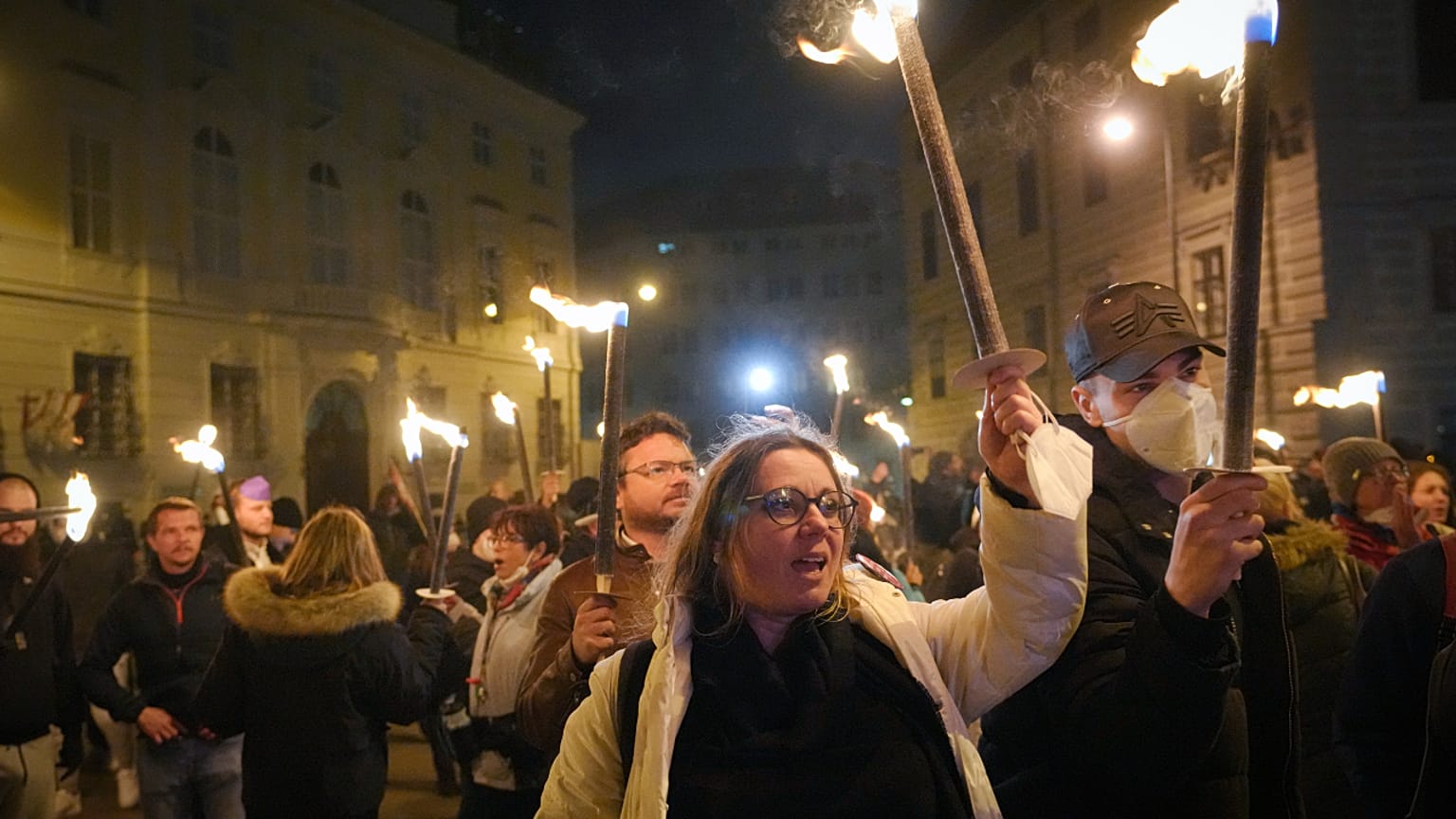"Natural Austrians" are becoming a minority in the country, according to far-right parties, who are marching through Vienna on Saturday to introduce the concept of "remigration" to the public.
A wide array of far-right groups marched in Vienna to launch what they claim is a political solution to “The Great Replacement”, a white nationalist theory which purports that non-European and non-Western groups are replacing majority populations in Europe.
 ADVERTISEMENT
ADVERTISEMENT
 ADVERTISEMENT
ADVERTISEMENT
“The goal of this protest is to coin terms and shape concepts and make them popular enough so that they get picked up by big right-wing parties like the FPÖ and the AfD and then be put in motion through parliamentary means,” organiser Gernot Schmidt told the Info-Direkt podcast, a far-right platform that also publishes a widely available magazine.
Several hundred marchers gathered in the Helmut Zilk Platz, named after a former mayor of Vienna in the 1990s who was killed by a letter bomb sent to him by far-right terrorist Franz Fuchs.
They carried black and yellow flags and banners with with "For Remigration" printed on them.
Schmidt is well-known in Austrian far-right circles, and was previously part of the Ring Freiheitlicher Studenten or RFS, a student wing of the Freedom Party of Austria, or FPÖ.
The FPÖ was formerly a pan-Germanist party, but has rebranded itself as merely an Austrian nationalist party. Its affiliate groups such as the RFS, however, often act as platforms for more radical ideas.
Several FPÖ officials have announced their participation in the protest, news that drew sharp criticism.
In a statement issued on Thursday, Austrian Interior Minister Gerhard Karner said that FPÖ’s participation in the protests “poses a security risk” for the country and that “joint protests with right-wing extremist groups such as the Identitarians underline the radical nature of the FPÖ leadership.”
Other notable far-right figures such as Martin Sellner, the leader of the Austrian Identitarian Movement, joined the march as well.
During a speech at the protest, he said he hopes the term "remigration" will become "more popular than Coca-Cola" next year.
‘Dress sensibly and avoid attracting attention’
While the march was announced and publicised well in advance, its exact location was kept secret until the afternoon to prevent “the left" from "appearing ahead of time and stopping us”.
Schmidt urged people to “dress sensibly and not like you belong to the scene,” effectively warning people not to bring swastikas or other paraphernalia that could draw attention to their political leanings.
“People should arrive to the march as normally as possible and in normal attire… then we will look just like people walking around Vienna,” he continued.
Anti-fascist groups organised a counter-protest, and blocked the far right by sitting on the streets along their path, forcing the marchers to reroute.
Police separated the two sides with safety barriers and dog teams. Several physical scuffles broke out, with both sides trying to break through the barriers and the far right throwing objects at the police.
Sellner and the Identitarian movement, which is present in other European countries such as France, Germany, Sweden and the UK, openly oppose internationalism, Islam and multiculturalism and advocate for what they call "ethnopluralism".
According to Schmidt, the idea that Austrians are being replaced by an immigrant population is a non-negotiable fact, and “remigration” is the only way to stop it.
“Remigration is the solution to the Great Replacement, which is the empirically provable fact that Austrians have become a minority in their country due to uncontrolled mass-migration and births by migrants and refugees who have more children,” he said in the Info-Direkt podcast, which styles itself as a “magazine for patriots”.
He explained that remigration “would mean closing the borders and returning migrants and people who are illegally in the country”.
Officially, Austria does not collect data on the ethnicity or race of its citizens. According to UNHCR, the current refugee population of the country is around 146,000. The country’s total population is approximately 8.9 million.
According to estimates, around 74% of the population has no immigrant background at all, while around 26% have at least one parent of immigrant background.
Schmidt says that these protests aim to show that there is popular support for legislative changes that would pave the way for immigrants or people perceived as non-Austrians to be “democratically sent back to their country of origin”.
“If we organise a protest, then the media has to write about it and people in Vienna will see it too, and then it can become popular. Once it becomes popular, then a lot of people will see that it’s a good idea and a sensible answer to The Great Replacement,” he explained.
Also slated to attend be Silvio Hemmelmayr, the chairman of the Freedom Youth of Upper Austria, another youth wing of the FPÖ which has been deemed a far-right extremist group by watchdog organisations in the country.
The groups have recently ramped up their rhetoric about the “great population exchange” or Bevölkerungsaustausch, which they believe is being carried out according to a secret plan intent on wiping out native Austrians.
Matters of belonging
While some argue Austrian identity is clearly distinguishable from the German one, especially when it comes to a wider belonging to the Catholic church instead of Protestantism, the far right in the country rarely encourages an Austria-centric approach.
Instead, they insist on what could be more precisely defined as a Germanic-Austrian identity, or one that does not include native Slavs, Italians, and other minority groups that have lived in the country for centuries. More recent immigrant groups are on their extreme exclusion list.
Michael Colborne, a journalist at Bellingcat and an expert on European far-right groups, says that Saturday’s march is a manifestation of this radical belief that all those deemed non-Austrian have no place in the country.
“They are explicitly saying, as politely as possible, that millions of people, including people who have citizenship and birth in the country, should be expelled,” he explained.














